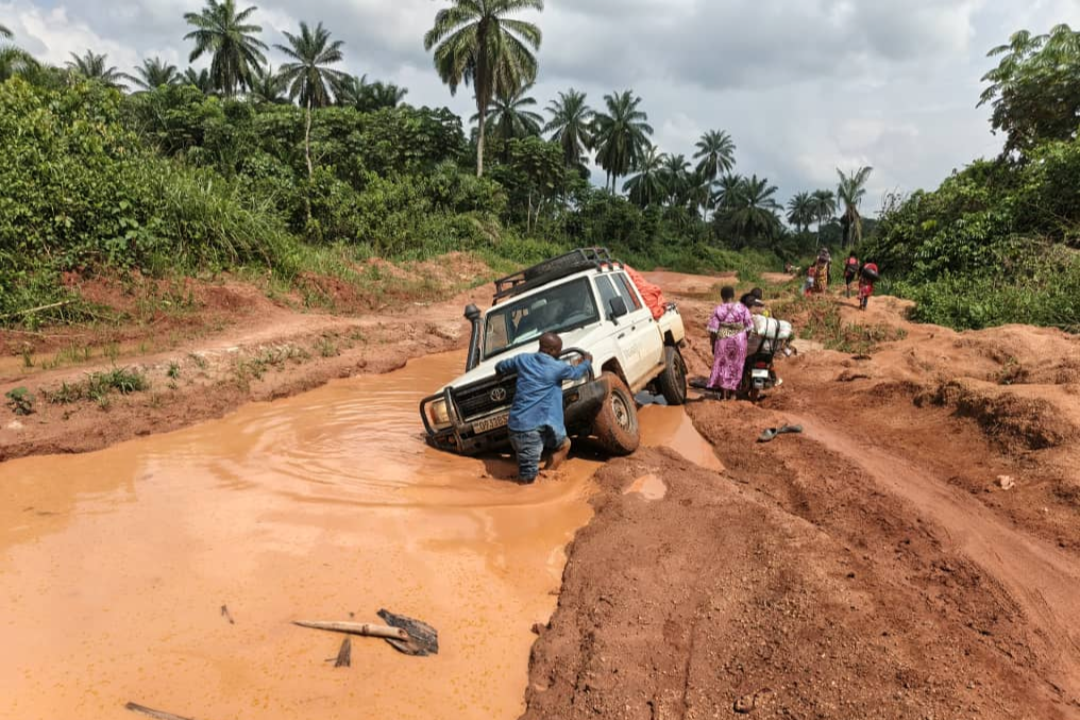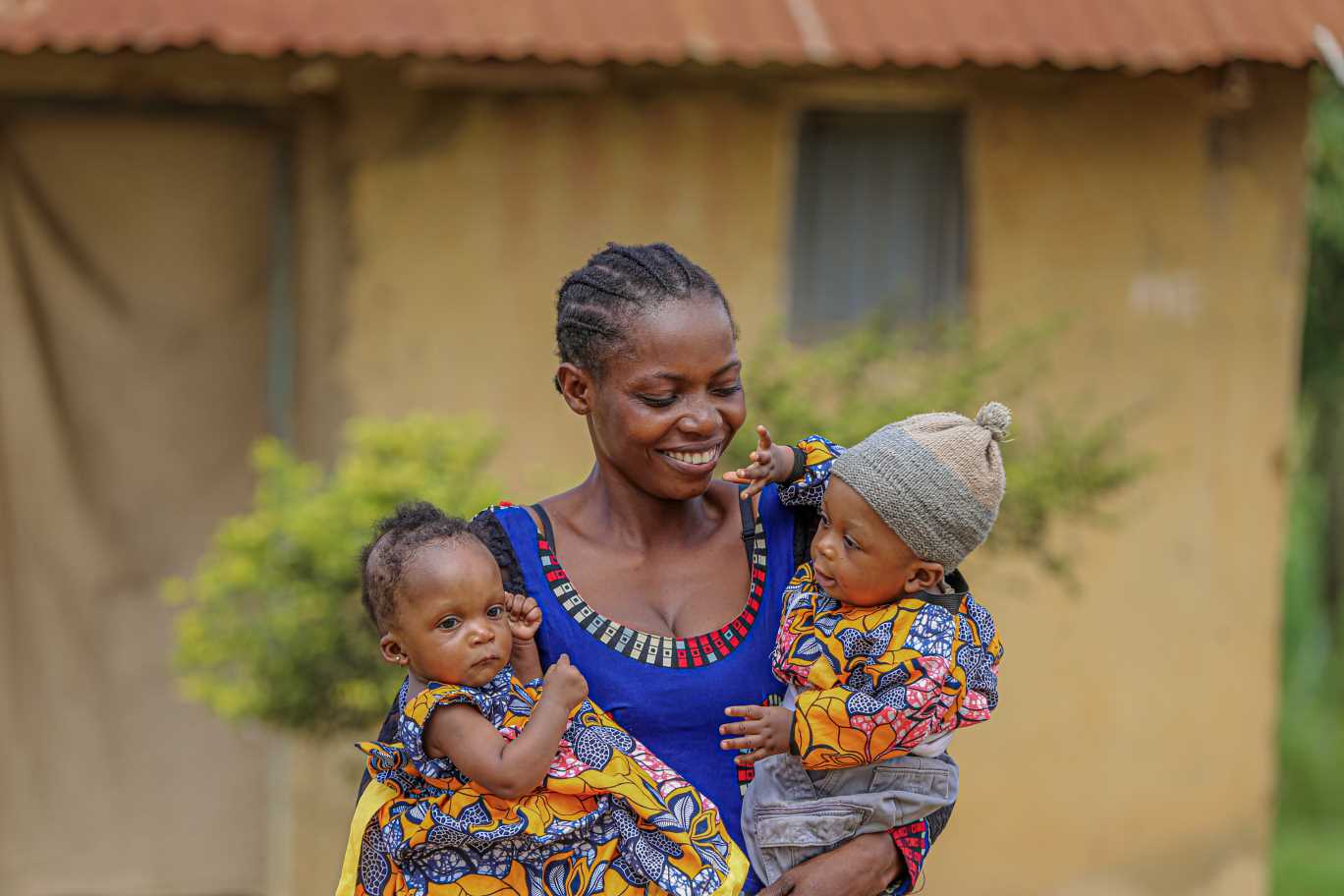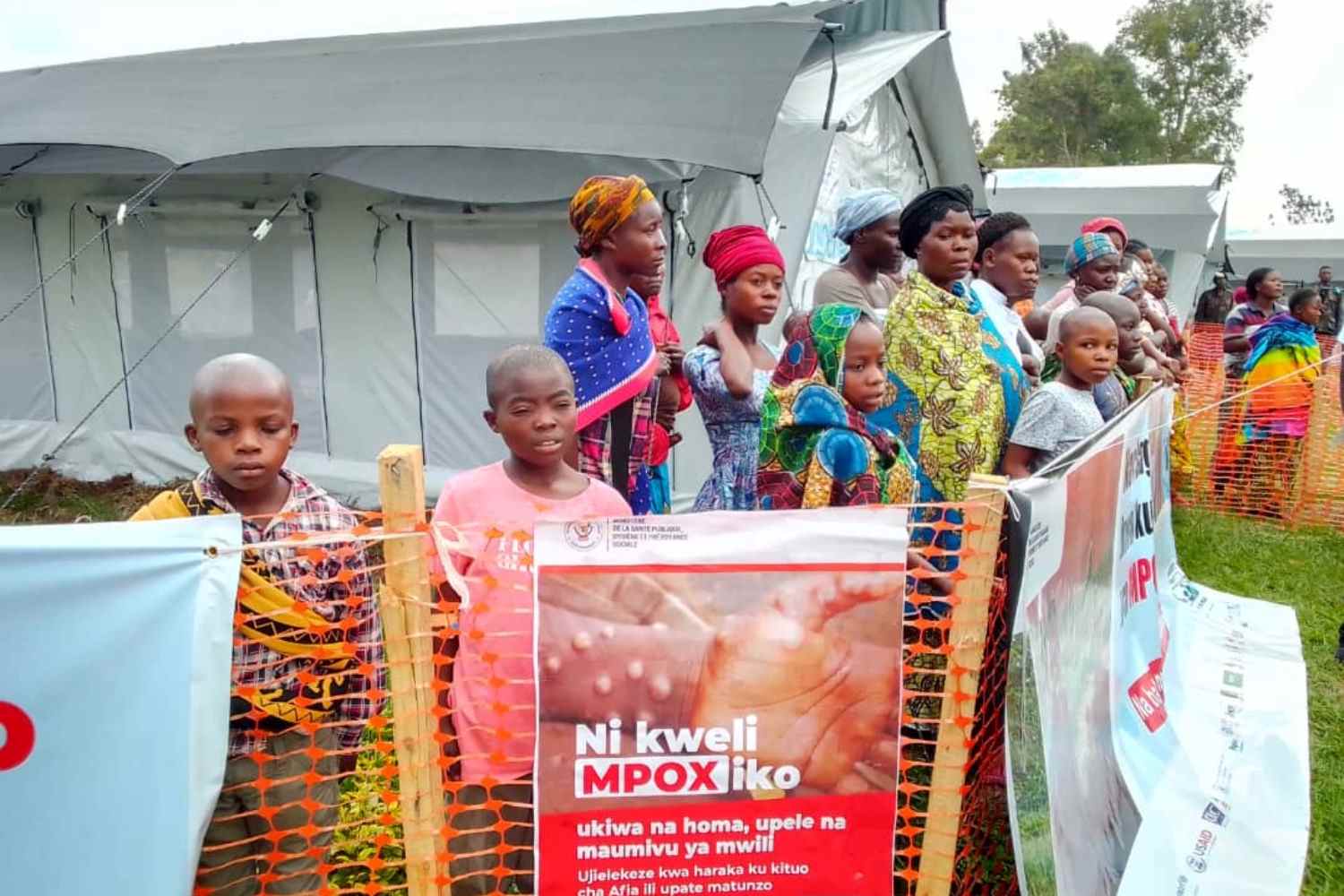In DRC, local solutions are bringing vaccines closer to families
In the Democratic Republic of the Congo, locally-led and Gavi-supported initiatives are helping to overcome the logistical, social and cultural barriers that keep families from accessing immunisation.
- 21 October 2025
- 7 min read
- by Patrick Kahondwa

The Democratic Republic of the Congo (DRC) is home to some of the highest numbers of unimmunised children in the world.
According to WHO/UNICEF estimates, around 658,000 children received no vaccines at all in 2023.
That number contracted slightly to 592,000 in 2024, as coverage with the first dose of the basic diphtheria, pertussis and tetanus-containing vaccine increased from 80% to 82%. But the challenges remain immense. DTP3 coverage – in other words, the percentage of children who have received the third and final dose of that basic vaccine, and a conventional indicator of full immunisation – remains low, at just 65% in 2024.
The reasons are many, and include the vast size of the country, poor infrastructure, long distances between communities, and persistent social and cultural barriers. Many of these challenges are specific to a region or locality, meaning not every part of the DRC faces the same level of difficulty accessing immunisation. A 2022 survey found that three-quarters of zero-dose children were concentrated in just 11 of the country’s 26 provinces.
To tackle these persistent gaps, Gavi created the Equity Accelerator Fund (EAF) – a global mechanism worth US$ 500 million that supports locally designed and implemented initiatives to close immunisation equity gaps.
The principle is simple: address the very real, day-to-day obstacles that prevent children from being vaccinated – whether logistical (supply chains, transport, storage), organisational (scheduling, outreach sites), or social and cultural (beliefs and norms that discourage families from seeking vaccination).
Launched in 2021, the Equity Accelerator Fund operates on two levels. Most of its budget – US$ 400 million – goes directly to Gavi-supported countries to fund locally designed solutions aimed at reaching zero-dose children. The remaining US$ 100 million supports targeted initiatives such as the Zero-dose Immunization Program (ZIP), which focuses on fragile settings and displaced populations.
In the Democratic Republic of the Congo, the EAF has already helped pilot and scale up innovative approaches across several provinces. In Tshopo, the fund has strengthened the vaccine supply chain to reduce stock-outs. In Haut-Katanga, it has enabled community-based strategies designed around families’ daily realities.
Tshopo: ending the long walks for vaccines
In Tshopo province, many health workers used to walk for miles to collect vaccines.
One of them is Botalimbo Wangata, head nurse at the Yaselia Health Centre in the Yakusu health zone, in the southwest of Kisangani, the provincial capital. At the start of each month, he had to travel more than 80 kilometres – sometimes on foot – to pick up vaccines. Often, he was forced to cancel or postpone immunisation sessions simply because the vaccines hadn’t arrived.
“I hoped to come back in time to vaccinate children in my area, but sometimes I returned empty-handed – due to stock-outs, cold chain breakdowns, or logistical failures,” he recalls.
He continues:
“The lack of regular vaccination sessions created mistrust among parents and caregivers, and many ended up forgetting the immunisation schedule. No storage site in our health zone was spared. My team and I would prepare vaccine orders, but they often arrived late. That discouraged parents from bringing their children to vaccination sessions.”
Like Botalimbo, Charles Djamba, head nurse at the Saint-Pierre Health Centre in the Makiso-Kisangani health zone, used to wait nearly three months before being able to restock vaccines from the central office. Some antigens were out of stock for more than 20 days at a time.
For nearly two years now, the NGO VillageReach, with support from the Equity Accelerator Fund, has been helping to strengthen vaccine supply chains. This effort is part of the Next Generation Supply Chain Initiative (NGCA), which aims to improve last-mile delivery by increasing the availability of essential health products and building logistics management capacity at every level.
With additional funding from Gavi, VillageReach is also supporting provincial-level coordination of vaccine logistics – helping the Expanded Programme on Immunization (EPI) logistics team, organising joint supervision visits, improving stock monitoring, conducting regular inventories, and ensuring timely deliveries and proper storage. Regular meetings between partners now help to track vaccine flow from central depots to storage sites, where vaccines are kept in optimal conditions thanks to better maintenance of cold chain equipment. A key part of VillageReach’s work focuses on strengthening vaccine logistics teams across all levels of the system.
“We used to experience frequent stock-outs,” says Dr Alain Mugoto, who leads the NGCA programme at VillageReach. “Now, vaccine availability averages around 80%. The supply chain is better managed – regular meetings bring all actors together, and deliveries are now planned and closely monitored by everyone involved.”
Haut-Katanga: vaccination schedules built around families
While Tshopo has benefitted mainly from improved logistics, work in Haut-Katanga has focused on reorganising vaccination services to make them more accessible.
Innovative approaches have been introduced – from door-to-door visits to community vaccination points – but the most successful has simply been adjusting vaccination schedules to fit families’ daily lives.
Between January and July 2025, nearly 60,000 zero-dose children and 43,000 under-immunised children received vaccines, according to data from the DRC’s centralised health system data management tool. Among all the new strategies, the flexible-hours approach alone reached almost 90% of the target group.
In Ruashi and other health zones across Haut-Katanga, many head nurses have adapted their vaccination days and hours to reach more children – offering sessions in the evening, on weekends, or even during religious services to ensure that no child misses out.
Have you read?
“Before the EAF, our coverage was low because parents had to comply with fixed days and hours set by the health centre,” explains John Banza, head nurse at the Notre-Dame Health Area in Ruashi. “Now, with flexible scheduling, things have changed dramatically. Parents can go about their daily activities and still bring their children for vaccination later.”
The flexible schedule has been a welcome change for many parents who once struggled to find time to take their children for vaccination.
“My work takes up most of my time,” says Bibi, a mother of two. “I spend most days on my farm, and Sunday is the only day I’m free. When health workers came by, they would never find me at home. And I don’t leave my children with just anyone. But thanks to the new schedule, my children are vaccinated – and my work isn’t affected.”
Changing perceptions: new allies for vaccination
It’s not only parents’ busy schedules or hard-to-reach areas that stand in the way of vaccination. In Haut-Katanga, experience has shown that social norms can also play a major role. Some fathers believed vaccination was a “women’s matter” – that only mothers should take children to be immunised.
Others feared they would have to pay for medicines to treat possible side-effects, and sometimes chose to hide their children when vaccination teams came around.
Today, thanks to work supported by the Equity Accelerator Fund, these attitudes are starting to change. More and more mothers are encouraged by their husbands to get their children vaccinated – and some fathers who once opposed vaccination now take their children in themselves.
One of them is Serge Kiwele, from the Ruashi health zone, who has become an advocate among his peers: “I used to refuse vaccination for my children,” he admits. “One day, my wife vaccinated our child without my permission. I scolded her because the child couldn’t sleep all night due to fever. But after all the awareness sessions, I understood how important vaccination is. Now I encourage others in my community who still have misconceptions. My children are fully vaccinated.”
More from Patrick Kahondwa
Recommended for you







